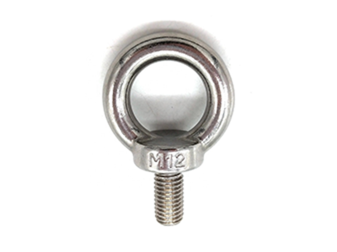Ago . 17, 2024 15:49 Back to list
M10 Standard Plain Washer Specifications and Applications for Fasteners and Hardware
Understanding M10 Plain Washers Importance, Applications, and Selection
When it comes to fastening components in various engineering and construction applications, the importance of washers cannot be overstated. Among the various types of washers available, the M10 plain washer holds a pivotal role in ensuring the stability and reliability of bolted connections. This article will delve into the characteristics, applications, and factors to consider when selecting M10 plain washers.
What is an M10 Plain Washer?
An M10 plain washer is a flat disc, typically made from metal or plastic, with a central hole that accommodates an M10 bolt or screw. The ‘M’ in M10 signifies the metric thread standard, and the number ‘10’ denotes the nominal diameter of the bolt in millimeters, which translates to approximately 10mm. Plain washers, sometimes referred to as flat washers, do not have any additional features such as grooves or ridges.
The primary function of the M10 plain washer is to distribute the load of a threaded fastener over a larger surface area, which helps to prevent damage to the surfaces being fastened. This load distribution is particularly vital in applications involving softer materials that may deform under pressure.
Importance of M10 Plain Washers
The incorporation of M10 plain washers into fastening setups brings several benefits
1. Load Distribution By spreading the load over a wider area, these washers help minimize the risk of failure due to mechanical stress. 2. Protection Against Surface Damage When a bolt is fastened tightly, it can mar the surface of the material. A washer acts as a buffer, protecting the integrity of the underlying materials. 3. Prevention of Loosening Washers can help in maintaining tension in the bolted connection by providing a firm surface for the nut or bolt head to press against, which reduces the likelihood of loosening due to vibration.
m10 plain washer

Applications of M10 Plain Washers
M10 plain washers are versatile components used in a wide range of applications
- Construction In structural applications, these washers are employed in conjunction with bolts to ensure that beams, columns, and other structural elements remain securely fastened. - Automotive Automotive assemblies frequently utilize plain washers for securing engine components, suspension parts, and chassis fittings. - Manufacturing In machinery and equipment, M10 washers are crucial for maintaining the integrity of various assemblies, particularly where regular maintenance and adjustments occur.
Selecting the Right M10 Plain Washer
When it comes to selecting M10 plain washers, several factors must be taken into consideration
1. Material Washers can be made from various materials ranging from stainless steel, which offers excellent resistance to corrosion, to plastic options suited for non-metal applications. Choosing the right material is critical based on the environment to which the washer will be exposed. 2. Thickness The thickness of the washer can also affect its functionality. Ideally, the washer should be thick enough to provide adequate load distribution but not so thick that it interferes with the mechanical operation of the assembly. 3. Surface Finish A smooth surface finish can help in achieving better load distribution and reduced friction. Depending on the application, selecting a washer with a specific surface finish can be beneficial for overall performance.
Conclusion
In summary, M10 plain washers play a crucial role in ensuring secure and stable connections in various industries. Their ability to distribute load, protect surfaces, and maintain tension under stress makes them indispensable. When selecting these washers, it is vital to consider material, thickness, and surface finish to ensure optimal performance in the intended application. By understanding the significance of M10 plain washers, engineers and technicians can enhance the integrity and reliability of their assemblies, contributing to successful outcomes in their projects.


